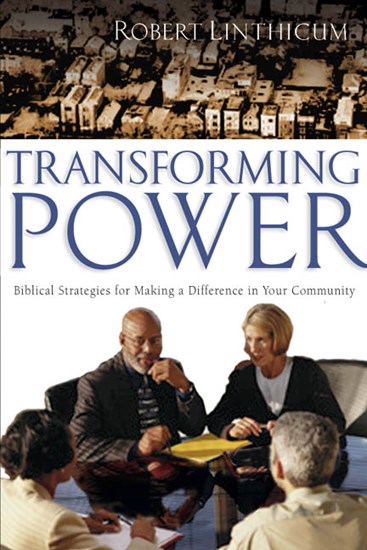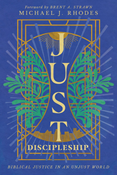
"Justice and power must be brought together, so that whatever is just may be powerful, and whatever is powerful may be just"--Blaise Pascal.
Problems plague the world around us. Many in our churches and communities face injustice, crime, poverty, racism and other daunting evils. But often Christians have not known how to respond effectively. The issues seem bigger than anything the church can handle, and so we are paralyzed into inaction and offer halfhearted prayers at best.
Yet throughout history God has empowered his people to stand up to injustice. When the situation calls for confrontation or structural change, our response must be more than personal piety, pastoral care or individualistic evangelism. Christians must become proficient in the practice and exercise of power.
Christians have often been wary of power, thinking of it as something inherently evil or oppressive. But God calls his people to wield power responsibly and to use it to promote his kingdom ideals of justice and peace.
Robert Linthicum offers an integrative, biblical study of the proper use of power. Based on a thorough exploration of Scripture and decades of real-world experience in community organizing and urban ministry, Linthicum's model of relational power provides sound, practical strategies for changing individuals, communities, structures and systems.
With insights from biblical mentors like Nehemiah and Paul as well as contemporary examples of Christians in action, this book offers hope for all who want to move toward the vision of the shalom community--God's intended best for communities and the world.
"This book presents a solid, profound, and inspiring case for why the church should take action in our communities. Any church or small group that wants to know how we, as Christians, can change our world would greatly benefit by reading this book."
"Transforming Power is spectacular. It is the finest biblical work on relational power I have ever seen. It also provides a wonderful connection between the biblical and the contemporary, particularly in community organization and resources available for urban ministry. We'll be using it heavily in our work here."
Transforming Power will be of interest to readers seeking change in church and society based on biblical example.
CONTENTS
Acknowledgments
Introduction
Part 1: A Theology of Power
1. Society As God Intended It to Be
2. What Keeps Going Wrong? Evil That Is More Than Personal
3. What Was Jesus About?
4. What Should the Church Be About?
5. Nehemiah and the Iron Rule of Power
6. Jesus Is Caesar: Paul's Theology of Power
Part 2: The Practice of Power
7. Building Power Around Relationships
8. Organizing for Community Action
9. Biblical Tactics for Change Avoided by Today's Church
10. The Spirituality of Relational Power
Epilogue: Get On With It!
Appendix A: Organizing Networks
Appendix B: Written and Video Resources
Notes
Bibliography
Subject Index
Scripture Index













